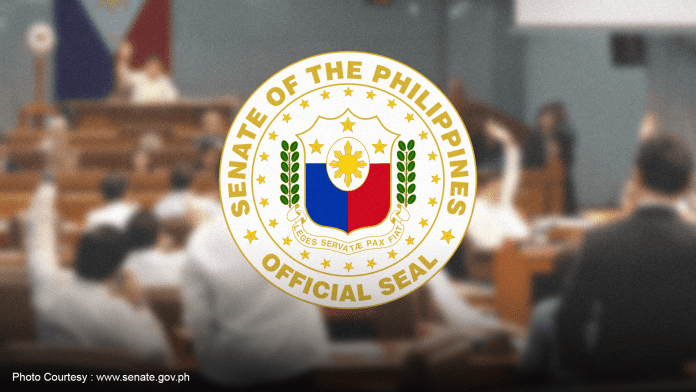MANILA – Three national bills were approved Monday by the Senate.
These were the Corporate Recovery and Tax Incentives for Enterprises to Maximize Opportunities for Reinvigorating the Economy (CREATE MORE) Act, Philippine National Police (PNP) Forensic DNA Database Act, and proposed amendments to the Rice Tariffication Law (RTL).
Senator Juan Miguel Zubiri, principal author of Senate Bill No. (SBN) 2762 or the CREATE MORE Act, said the measure will address issues hampering the growth of the country’s investment landscape.
“There is so much interest to the Philippines as an investment haven here in Southeast Asia, especially after we joined the Regional Comprehensive Economic Partnership Agreement. But there is still a lot of work that we need to do in order to turn that interest into actual investments,” Zubiri said.
“And there is also a lot to do in order for us to actually keep investors who are already here in the Philippines,” he added.
SBN 2762 seeks to reduce corporate income tax from 25 percent to 20 percent and eliminate value-added tax (VAT) on essential services.
It shall also allow large domestic enterprises to receive VAT zero rating, exemption and duty exemptions.
Meanwhile, SBN 2474, or the PNP Forensic DNA Database Act, is meant to deter crimes and aid in criminal investigations.
Senator Ronald Dela Rosa, a former PNP chief, said the landmark legislation is a significant leap to a more efficient and effective administration of justice.
“With the aid of technology, our police will have access to an essential tool that will help them in solving crimes,” Dela Rosa said.
The DNA database will collect samples from convicted criminals, those with pending cases, legally detained individuals and law enforcement officers.
It will also assist in identifying missing persons and disaster victims.
A National DNA Database Scientific Advisory Board shall be established to oversee management and ensure compliance with data privacy and human rights.
SBN 2779, or Amendments to the RTL Act, seeks increased funding for the Rice Competitiveness Enhancement Fund (RCEF) from PHP10 billion to PHP30 billion annually until 2031 to support farmers and improve rice production.
It shall create a Program Management Office that will oversee the RCEF and the National Rice Program.
The Department of Agriculture’s (DA) Bureau of Plant Industry Regulatory Functions will be strengthened, with the Secretary empowered to respond to rice shortages and price increases by selling rice through government agencies and outlets.
When there is no locally produced rice available, the DA shall be allowed to import rice, while the President can prohibit further importation or specify the volume to be imported during excessive supply. (PNA)

